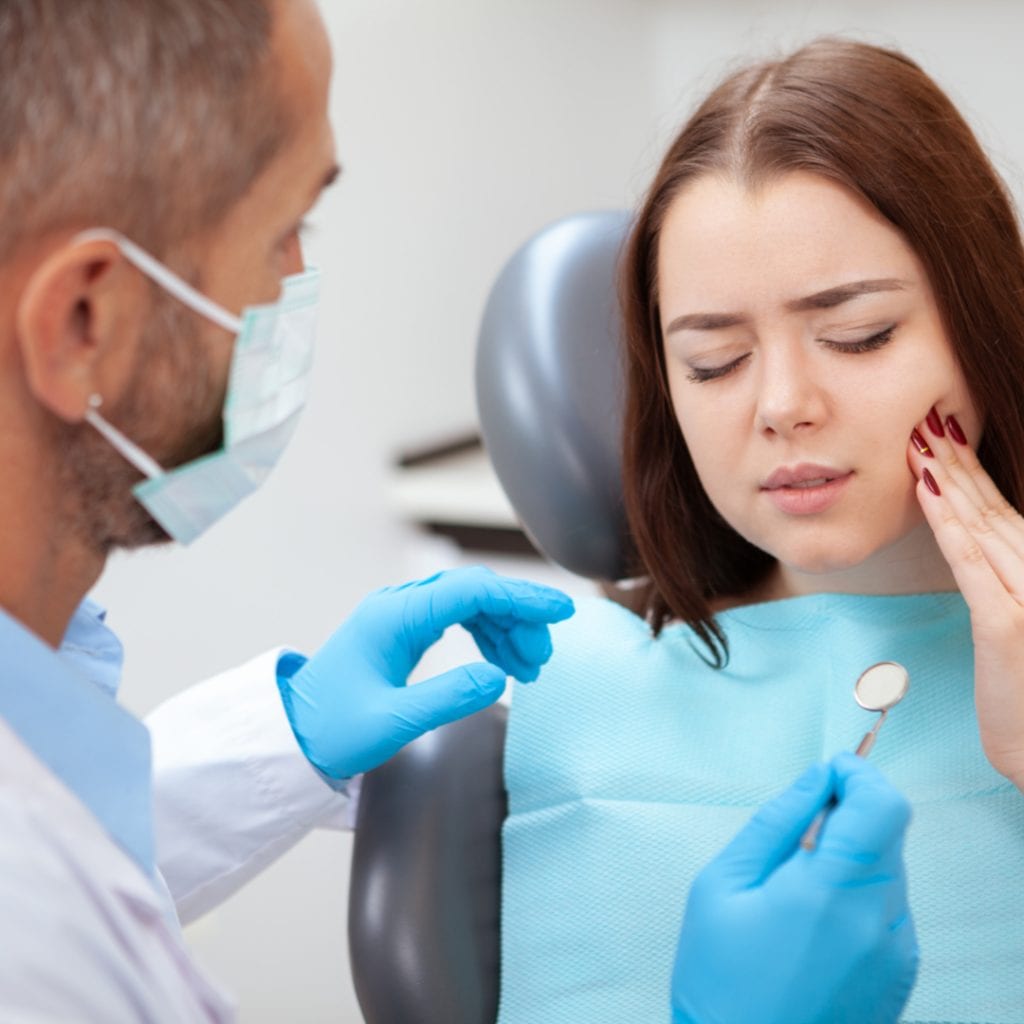
Dental emergencies can happen at any time, in any place. If you find yourself needing urgent help, don’t hesitate to reach out. At the moment, when practices are running reduced services and patients are worried about the Covid-19 crisis, people may be more reluctant to seek help. The message from dentists is that emergency help is available.
What counts as a dental emergency?
There are many different types of dental ailments and some require swifter or more intensive action than others. Minor problems, such as toothache, a small chip in the tooth and tooth sensitivity, need treating, but there’s no need to seek emergency assistance. Call your local dental practice and arrange an appointment to see your dentist at a time that is convenient to you. Severe issues, such as broken teeth, intense pain, which is affecting day to day life or getting worse, severe swelling and excessive bleeding caused by facial injuries, require urgent treatment. If you experience any of these symptoms, contact your dentist as soon as possible. It’s also crucial to seek advice from your dentist or your GP if you are worried about symptoms associated with oral cancer, such as abnormal lumps or swelling and mouth sores and ulcers that take a long time (more than 2 weeks) to heal.
If you’ve been injured or involved in a traumatic accident, which is causing facial swelling that is impacting your vision or your ability to breathe, you are bleeding heavily after an incident, or you experience loss of consciousness or vomiting, call 999.
What happens when you see an emergency dentist?
Dental professionals understand that accidents happen, and practices have emergency appointments available to ensure that teams can treat patients promptly. If you need urgent help, all you have to do is contact your dental practice and provide some information about your symptoms. If you need assistance during practice hours, you will be given an appointment at the earliest possible opportunity. If you need help outside of standard working hours, you can call NHS 111 or contact your practice and listen to instructions on the answering service. Some practices offer out of hours care. In extreme circumstances, for example, when an individual sustains severe facial injuries, it may be necessary to visit Accident and Emergency.
When you go for your emergency dental appointment, your dentist will ask you some questions about your symptoms and then examine your mouth to determine the underlying cause and possible treatment options. You may need an X-ray. The priority is to prevent the situation from getting worse and to alleviate pain. Your dentist may prescribe painkillers or antibiotics, depending on the diagnosis. After your appointment, it may be necessary to book another treatment session. If you broke a tooth, for example, you may have a temporary crown fitted and your dentist will advise you to visit again to place a permanent crown on the tooth.
Summary
Dental emergencies can affect anyone, and they often happen when you least expect them. Times are strange at the moment, but dentists are keen to ensure that patients understand that they can access emergency care. If you have pain that is getting worse, you’ve been in an accident, or your mouth is swollen and the inflammation isn’t easing with medication, don’t hesitate to contact your dentist.
Tags: City Dental Dentist, covid-19, dental, Dental appointment, emergency, Symptoms







